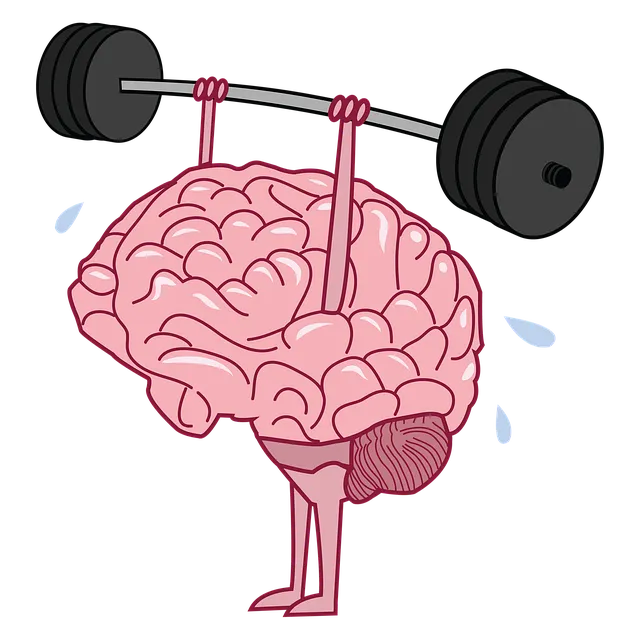Longmont Kaiser Permanente prioritizes stress management through comprehensive behavioral health services, cultural competency training, and risk assessment. Their workshops, as highlighted in reviews, effectively combat stress by engaging diverse learning styles with interactive activities like group discussions, role-playing, and mindfulness exercises. Creating a supportive environment, combining theoretical knowledge with personal reflections, and incorporating practical skill-building tools enhance mental wellness. Longmont Kaiser Permanente behavioral health services reviews measure workshop success, providing valuable feedback for continuous improvement.
At Longmont Kaiser Permanente, we recognize the profound impact of stress on our well-being. To address this, we organize comprehensive stress management workshops, weaving together expert insights with engaging strategies. This article delves into the art of designing and facilitating these sessions, exploring common causes and effects of stress. Through interactive activities and proven facilitation techniques, participants gain practical tools to navigate life’s challenges. We measure success through feedback and continuous improvement, ensuring our behavioral health services at Kaiser Permanente Longmont remain effective and responsive to community needs.
- Understanding Stress: Unveiling Common Causes and Impact at Kaiser Permanente Longmont
- Designing Effective Stress Management Workshops: Engaging Content Strategies
- Creating a Supportive Environment: Facilitation Techniques for Optimal Learning
- Incorporating Interactive Activities: Fostering Engagement and Practical Skill-Building
- Measuring Success and Feedback: Evaluating the Workshop's Impact and Continuous Improvement
Understanding Stress: Unveiling Common Causes and Impact at Kaiser Permanente Longmont

At Kaiser Permanente Longmont, understanding stress involves delving into its common causes and impacts. Stress is a multifaceted response to various internal and external factors, such as work pressure, personal relationships, financial concerns, and health issues. Recognizing these triggers is the first step in effective stress management. Behavioral health services reviews consistently highlight the importance of identifying individual stressors and developing personalized coping strategies.
The organization’s commitment to mental well-being extends beyond its facilities, emphasizing the need for comprehensive solutions. This includes addressing healthcare provider cultural competency training to ensure sensitive and effective care. Additionally, risk assessment for mental health professionals is a crucial component in managing stress, as it helps identify early warning signs and promotes timely interventions. By integrating these approaches, Kaiser Permanente Longmont aims to empower individuals to navigate life’s challenges with resilience and improved mood management.
Designing Effective Stress Management Workshops: Engaging Content Strategies

Effective stress management workshops require engaging content strategies to cater to diverse learning styles and keep participants interested. Incorporating a mix of interactive activities, such as group discussions, role-playing scenarios, and mindfulness exercises like meditation, can enhance engagement and knowledge retention. These techniques allow participants to apply concepts in real-world contexts, fostering a deeper understanding of stress management techniques.
Additionally, integrating Healthcare Provider Cultural Competency Training into workshop curricula is vital for building inclusive environments that address the unique needs of diverse populations. This training equips providers with the skills to recognize and respect cultural differences, ensuring that stress management interventions are sensitive to various backgrounds and beliefs. Longmont Kaiser Permanente behavioral health services reviews highlight the success of such workshops in improving patient outcomes and satisfaction, making them a valuable component of community outreach program implementations.
Creating a Supportive Environment: Facilitation Techniques for Optimal Learning

Creating a supportive environment is paramount for effective stress management workshops. At Longmont Kaiser Permanente behavioral health services, reviews highlight the success of fostering an atmosphere that encourages open dialogue and active participation. This involves setting ground rules that emphasize respect, confidentiality, and active listening. Facilitators should employ techniques such as icebreakers to build camaraderie among participants, ensuring everyone feels comfortable sharing their experiences. Engaging activities that promote self-awareness exercises and encourage personal reflections can help attendees gain insights into their stress triggers and coping mechanisms.
The role of the facilitator is crucial in guiding discussions without judgment. Incorporating interactive elements like small group discussions, role-playing scenarios, and mindfulness practices enhances learning. These techniques allow participants to explore different strategies for managing stress in real-world contexts. By combining theoretical knowledge with practical exercises, mental wellness coaching programs can effectively develop inner strength, as evidenced by the positive Longmont Kaiser Permanente behavioral health services reviews. This holistic approach ensures that attendees leave the workshop equipped with valuable tools to navigate life’s challenges more resiliently.
Incorporating Interactive Activities: Fostering Engagement and Practical Skill-Building

Incorporating interactive activities is a key strategy for successful stress management workshops, as it fosters engagement and promotes practical skill-building. Unlike traditional lecture-style sessions, interactive elements like group discussions, role-playing scenarios, and hands-on exercises allow participants to actively participate in their learning experience. This dynamic approach not only breaks up monotony but also encourages personal reflection and application of new strategies. For instance, a Longmont Kaiser Permanente behavioral health services review highlights the effectiveness of workshops that include interactive activities in promoting mental wellness.
By engaging participants in practical skill-building exercises, these workshops equip individuals with tangible tools to manage stress effectively. Whether it’s learning mindfulness techniques, practicing emotional regulation through creative outlets, or exploring depression prevention strategies in a safe space, such activities empower attendees to take charge of their mental health. The Longmont Kaiser Permanente behavioral health services, for instance, have been known to utilize the Mental Wellness Podcast Series Production as a means to enhance these interactive sessions, making them more dynamic and relatable for participants.
Measuring Success and Feedback: Evaluating the Workshop's Impact and Continuous Improvement

Measuring success and gathering feedback are essential components of any Stress Management Workshop organization. To evaluate the impact, Longmont Kaiser Permanente behavioral health services reviews play a pivotal role. These reviews capture participant experiences, identifying what worked well and areas for improvement. By collecting honest feedback, the workshop organizers can tailor future sessions to better meet the needs of attendees.
The process involves post-workshop surveys, one-on-one discussions, and even follow-up journaling exercises guided by Mental Wellness Journaling. These tools allow participants to reflect on their learning and share personal insights. Incorporating Communication Strategies within these evaluations ensures open dialogue, fostering a culture of continuous improvement for the Stress Management Workshops Organization.
Stress management workshops, as demonstrated by Kaiser Permanente Longmont’s initiatives, offer a powerful tool for enhancing well-being. By combining educational content, interactive activities, and supportive environments, these programs equip individuals with effective coping strategies. The success of such workshops is evident in the positive behavioral health services reviews from participants. Continuously evaluating and refining these sessions ensures that they remain impactful, catering to the evolving needs of those seeking stress relief and improved quality of life.






